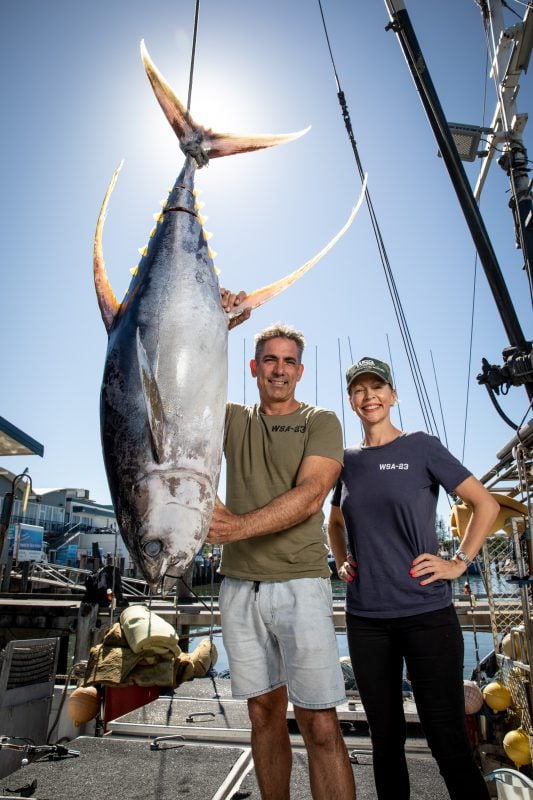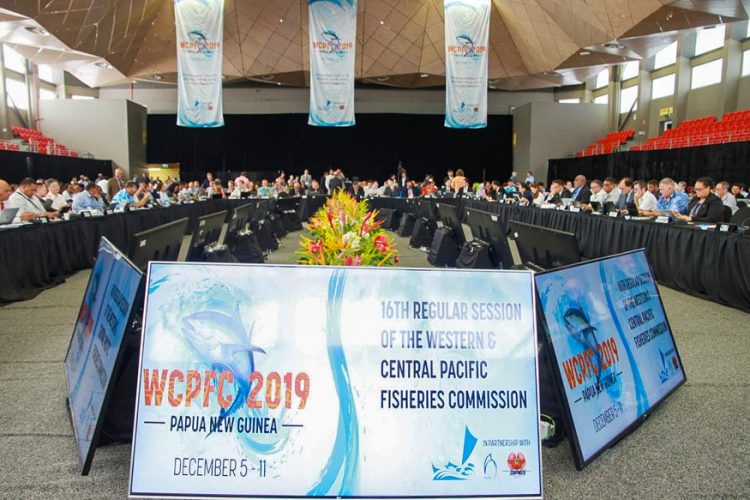‘Guardians of the resource’: Tuna Australia wins Leader for a Living Ocean in Sustainable Seafood Awards
Tuna Australia, the industry body for tuna producers, is a winner of the Leader of the Living Ocean award as part of the Marine Stewardship Council’s (MSC) Sustainable Seafood Awards Australia 2022.
The award recognises a business that is working tirelessly to advance ocean and seafood sustainability, has made a huge impact on the industry, and is well respected within their field.
“Tuna Australia members have shown dedication to constantly improving environmental and social outcomes through fishing, helping to ensure a healthy blue food supply for years to come,” said Anne Gabriel, Oceania and Singapore Program Director, MSC.
“The award also recognises the market uptake from retailers, fishmongers and restaurants sourcing from Tuna Australia members, reflecting the collective commitment right through the supply chain to a sustainable future.”
Tuna Australia member Heidi Walker, owner of Walker Seafoods Australia, said the award celebrates Tuna Australia’s and the industry’s efforts and hard work to support sustainable fishing.
“As fishers, we are guardians of the resource,” said Walker.
Our priority is the ocean, and we are all committed to safeguarding seafood supplies for the future and minimising impacts on the ocean.”
Supporting a sustainable industry

Walker Seafood Australia owners Pavo and Heidi Walker with a whole yellowfin tuna being hauled off their boat in Mooloolaba. Photo by Paul Harris.
Tuna Australia was formed in 2016 to support commercial tuna fishers and processors—operating in the Eastern and Western Tuna and Billfish Fisheries, and the Southern Bluefin Tuna Fishery—to ensure a sustainable and profitable industry.
“Our members target six key fish species: albacore tuna, bigeye tuna, southern bluefin tuna, yellowfin tuna, broadbill swordfish, and striped marlin,” said Phil Ravanello, interim chief executive officer, Tuna Australia.
“Tuna Australia undertakes projects, research and advocacy to align with national and global visions to end overfishing, minimise impacts on the environment and ensure traceability across the supply chain.”
In 2020, Tuna Australia pursued and was awarded MSC certification—the global gold standard for sustainability—for its member vessels operating in the Eastern Tuna and Billfish Fishery (ETBF).
Stretching from Cape York in Queensland to the South Australian/Victorian border, the ETBF is one of Australia’s largest Commonwealth fisheries.
During the course of fishing operations, Tuna Australia members submit catch and effort data to the Australian Fisheries Management Authority (AFMA), who oversees and manages the sustainable use of Commonwealth fisheries.
Tuna Australia also collects individual fish weight data from fish receivers and provides this information to AFMA and the CSIRO under contract. This data is pivotal to measuring the year classes of fish coming through the fishery to inform stock assessments.
“These are some of the many ways that Tuna Australia and AFMA work hand-in-hand to ensure stock sustainability,” said Wez Norris, chief executive officer, AFMA.
“Tuna Australia members also provide expert advice to fisheries management forums and actively participate in research to ensure seabird, shark and turtle protection.
These efforts are ensuring Australian fish stocks and our fishing industry are viable now and in the future."
A healthy blue food supply
A key focus of Tuna Australia is conducting practical research using member boats and expertise to support sustainable fishing practices.
For example, Tuna Australia recently produced a research report looking at bait usage in the ETBF, where most of its members operate.
“The findings helped members to better understand the sustainable bait landscape and identify different sources of the Argentine shortfin squid that could reduce pressure on the species,” said researcher and co-author Dr. Clara Obregón of the research, which was funded by the MSC Science and Research Fund.
Previous research, funded by the Our Marine Parks Grants Program, has investigated how GPS technology can help skippers manage longline drift around marine parks.
Currently, projects funded by the Fisheries Research and Development Corporation are looking at how members can use mitigation devices more safely while further minimising impacts on endangered, threatened and protected species encountered during fishing operations.

Tuna Australia members participate in decision-making bodies such as the Western and Central Pacific Fisheries Commission. Photo by Phil Ravanello.
Tuna Australia members include third and fourth generation fishing families, with a proud history and deep respect for the oceans and its marine life.
Recognising their important role in food security, members actively participate in decision-making management bodies, such as the Western and Central Pacific Fisheries Commission (WCPFC).
“This representation allows members to inform government positions on holding other catching nations to account on sustainability, comparable monitoring arrangements and reducing global fishing capacity,” said Ravanello.
“In these global forums, our members are also leading by example in terms of bycatch mitigation and implementing global conservation measures.”
Other recipients of the Leaders of the Living Ocean Award were Mars Petcare Australia and Simplot Australia.